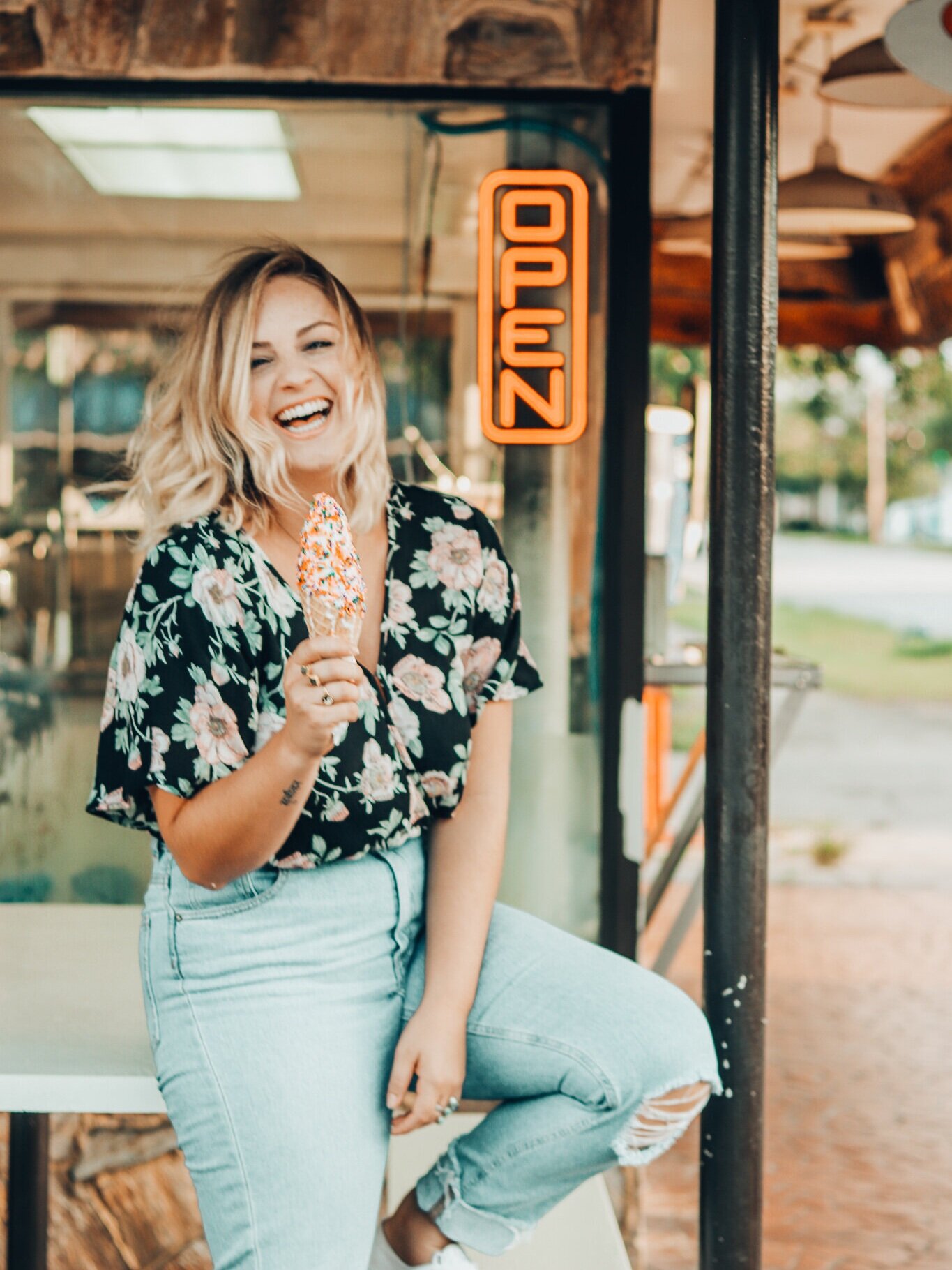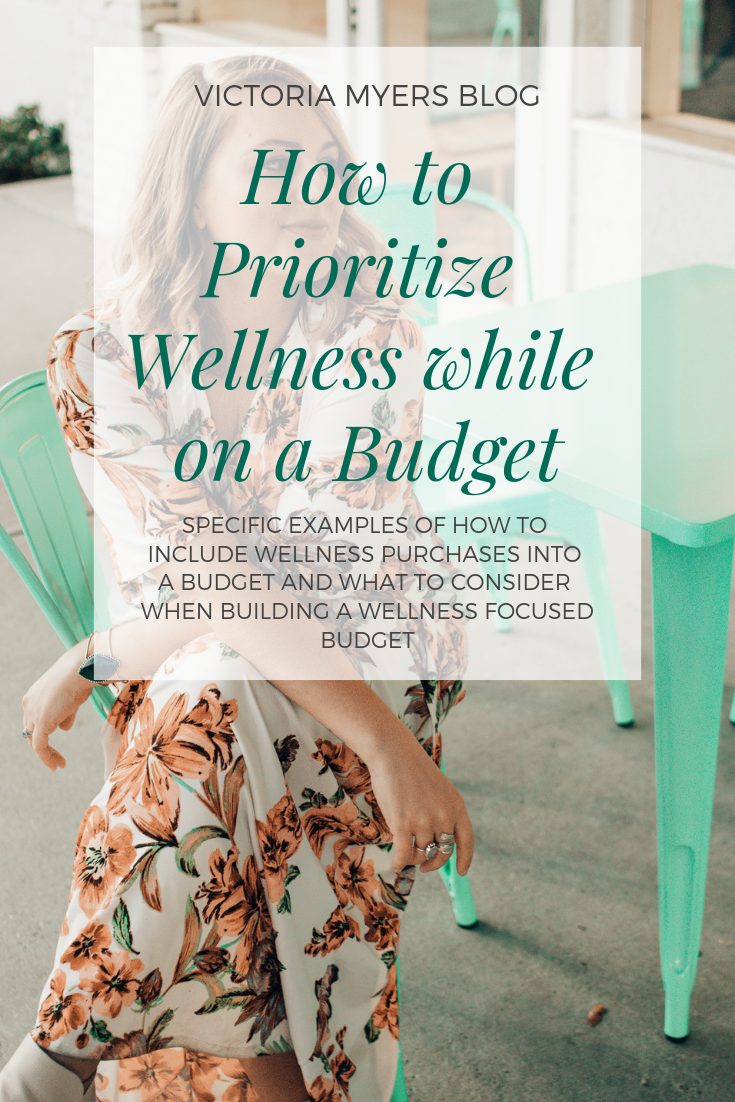How to Prioritize Wellness While on a Budget
A month or so back, I mentioned on Instagram our personal budget that Nick and I use, and y’all had tons of questions! Specifically around how I prioritize wellness purchases while still being on the budget.
It made me so excited you wanted to chat about this and I am happy to share some of our personal ways of balancing budgeting while prioritizing wellness. A couple things I want to preface before going on with this blog post…
Personally, being into wellness also includes being intentional with purchases. I am that way about every purchase, not just what I purchase that has to do with “wellness”. I find when I put thought and consideration into every single purchase I make, its much easier to find room for my favorite things while also being budget savvy.
Being on a budget, in my personal opinion, is imperative no matter how little or how large amount of money you make and have. Being financially smart is such a wise decision, no matter your income.
I’ve always had a budget, when I was in college and up into this very day. I have big financial goals for our personal lives and my business, and knowing every in and out of where your money is going is critical. I treat the business budget the same way I treat our personal finances, with an itemized spreadsheet and knowing every single purchase that is made. I know many look at having a budget as limiting, but I see it quite opposite. As long as I budget for it, I can purchase anything I’d like!
As you know, I’m all about wellness…but very much without obsession. Nothing is necessary, other than having shelter, food in your belly, water and safety. Please know that your mental health and your basic necessities always come first. Personally, I know I would be just as happy and healthy without the below purchases we are going to discuss, I look at it as extra fun and I express extra gratitude when I can purchase the things I enjoy having as part of my wellness routine.
And the most important thing to mention, wellness is indeed, without a doubt, a privilege. That doesn’t mean you should feel defensive, but rather empowered knowing that it is a privilege. There are so many people in this country and in the world who cannot think about “wellness” and its critical we remember that.
So here it is how it works for our (Nick and I) personal budget and how I pay for extra wellness items into our budget.
We have a spreadsheet. Its an itemized spreadsheet where every purchase is put into a category. We have each purchase under budgeted amount, how much was actually spent, and what we were over/under on.
In order to make room for wellness purchases, all other expenses must first be met. This includes all life necessities (mortgage or rent, food, etc) but also includes paying off debts and savings. If there is an item to go first, its something optional like a wellness purchase.
As long as I meet my savings goals, I chose to not feel guilty for spending money on myself. We created the spreadsheet loosely based off the 50/30/20 division of 50% of your expenses is absolute necessities, 20% is savings and paying off debts and 30% is for optional/personal expenses.
Our budget in 2019 (so far) includes wellness items such as:
Victoria's Clothes/Products/Hippy Shit
Yes, that’s exactly how its named in our spreadsheet! Any clothes, products, skincare or hippy shit I buy (think crystals, sage, etc) goes into this category. It varies depending on our expenses every month, but is usually between $100-200 every month.
So if I want more clothes that month, I have to spend less on skincare or hippy shit. And vise versa. Whatever I purchase within those categories has to fit within the allotted amount. A lot of the time that means planning out my purchases and knowing that if I am going to spend more on one of the items within that category, other things have to wait.
Supplements/Medication
This is combined for both of us, with a typical budget of $150 every month (although we usually spend $75-100 monthly, its better to round up and have extra money leftover). Typical supplements we purchase our items like collagen, probiotics, fermented cod liver oil, prenatal vitamins, adaptogens, essential oils, etc. Just as above, this means I am usually planning which supplement we will purchase that month and keep them all rotating for when they run out so I don’t have to purchase all at once. If the budget is maxed out, it means one of the supplements we have run out of will have to wait until the next month when there is room in the budget again.
Victoria’s Massage
(Also how its named in the spreadsheet). I budget monthly $80 so I can get a massage once a month as its my #1 favorite away to practice self care. I feel so dramatically better with getting massages regularly, so I budget it every month. If we are way over in other expenses or have a large expense that month I will reschedule it for the next month, but that luckily rarely happens. I feel so, so grateful this is something I can include in our budget monthly!
Gym and yoga memberships
My city folk reading this are going to laugh, but memberships here are not very pricey! I budget $60 a month for my yoga studio and Nick budgets $30 a month for his gym membership.
Other
If I am having a month where I really want to get some acupuncture, I’ll add $40-100 into the budget to account for this. Again I luckily live in a city where I can access great acupuncture at a low cost of $20 a visit (its a community acupuncture setting which I couldn’t recommend enough to make it more affordable!)
I also go to the chiropractor every other week (as does Nick), but this is covered by our HSA account so we don’t include it in our personal budget. If you can get doctor’s notes for massages, acupuncture and supplements you can often cover this in your HSA too, so keep that in mind if you have an HSA account as part of your health insurance!
Cleaning supplies and more
Cleaning supplies are covered into our grocery budget, but I also wanted to mention that I am slowly purchasing more sustainable products, like dry brushes, organic sheets, etc. Most of this is covered in our
”home” category where we put home depot trips, home decor and items I just mentioned. If you had expenses such as composting or pick up for recycling, I’d also include this in the home or a separate category.
Groceries
I consider food a necessity purchase so it doesn’t go into the optional category like the purchases above, so it is included with things like our mortgage, etc that is 50% of our expenses. We spend $200 a week on groceries for a total of $800 a month (and truthfully sometimes we go way over in this, so its nice to have extra room in the budget which is why we sometimes budget more than we need for other items plus we also include in the budget a contingency fund- ours is $300 a month- which helps when that happens). This amount works for us, but may be way more or way less than what you personally need. The vast majority of our groceries are organic, and this amount also allows for me to purchase meat that comes from a local farmer or sustainable practices.
Getting Started
If you’ve never created a budget before, don’t let it overwhelm you! Look at it as a way to get excited about creating financial abundance and financial freedom. Figure out where your money is going so you can spend and save how you desire.
Start first with writing out all your expenses and putting them into categories. Do your research and figure out what you believe in with how to spend your money. That’s how years ago I created the budget that we use today, was deciding to use the 50/30/20 division.
At this current time, we don’t follow this exact division, we are in savings mode with a baby on the way so I’d say we save around 30-40% of our income and have optional purchases at around 10-15%. But for me, the 50/30/20 was a great way to get started and over time we adjusted it to our personal preferences.
Please keep in mind the figures I gave above will look different for everyone- base it off the expenses in your city, your lifestyle, your needs and your income and don’t compare!
Tell me:
Do you like chatting more personal things like marriage, co-budgeting and 50/50 division of home responsibility?
Do you budget? If so, do you include wellness items into your budget?
What further questions do you have about budgeting?
XOXO, V
A huge thank you to Nick who keeps the budget up to date on a daily basis so I can review it and focus on the business budget!






